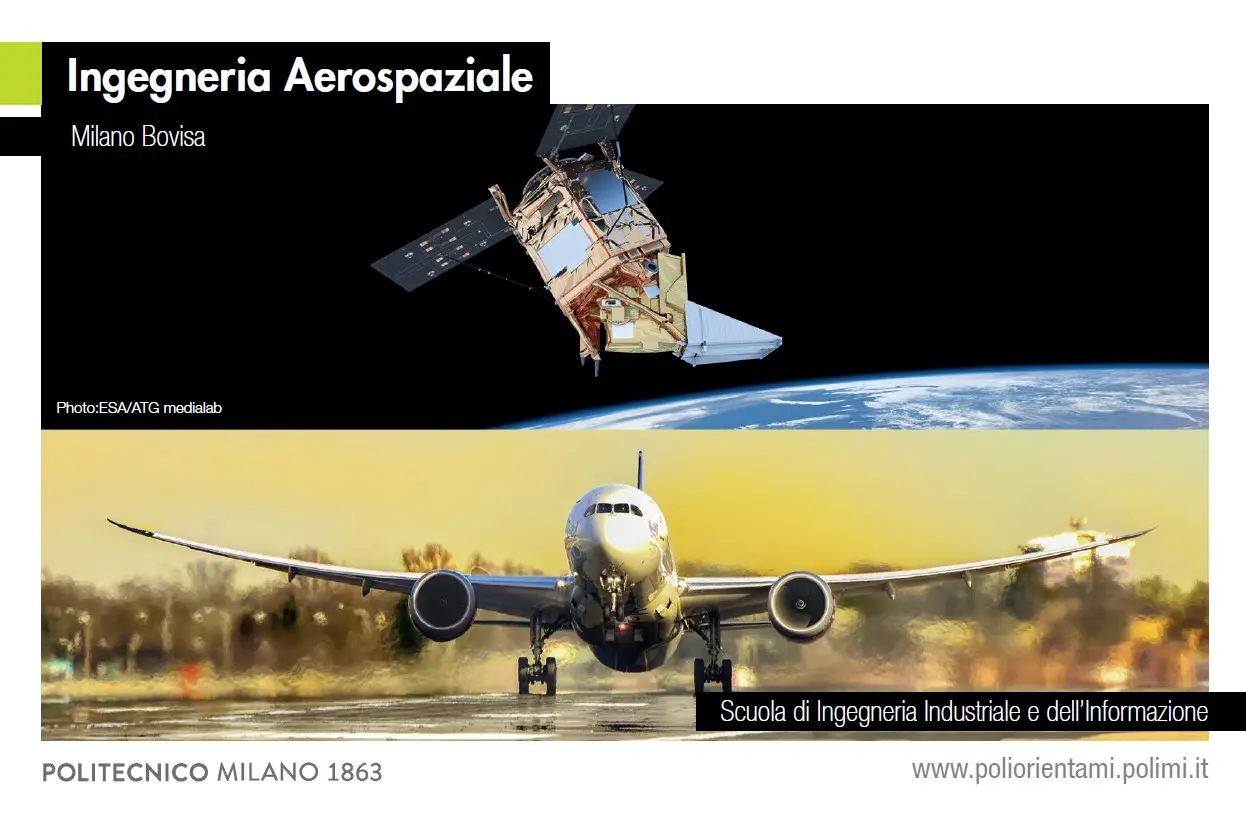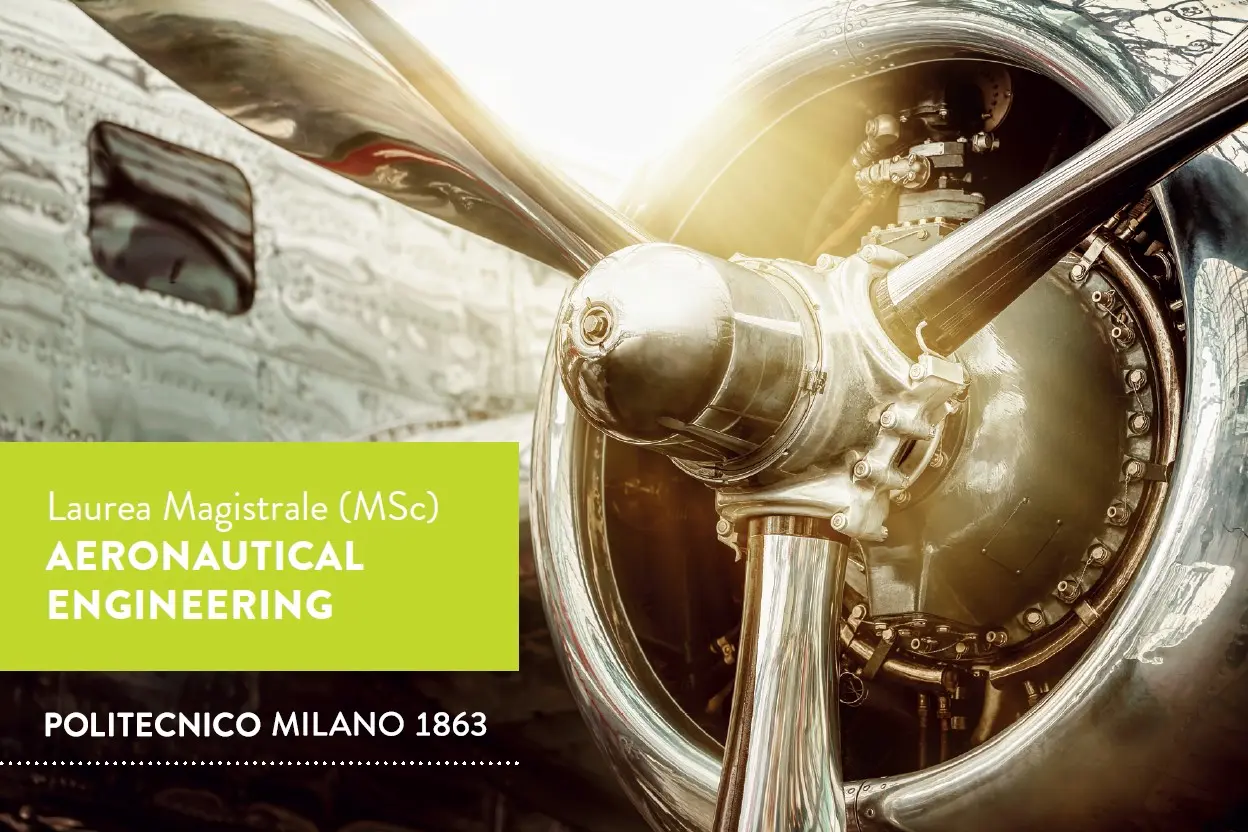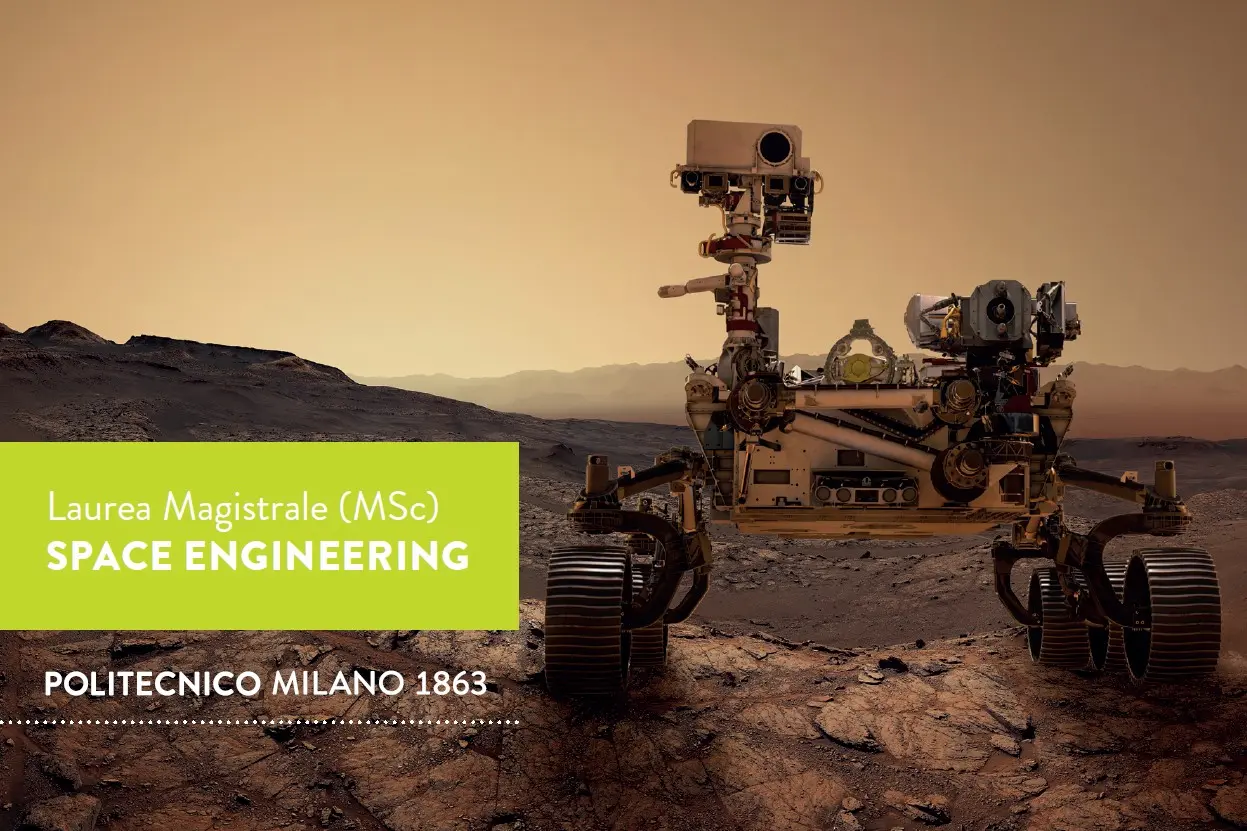Study Programmes
The aerospace sector requires highly professional engineers capable of working successfully in extremely interdisciplinary areas with a high level of technology, elevated efficiency and safety requisites and in a continually evolving and markedly international context.
Bachelor of Science in Aerospace Engineering

The graduate in Aerospace Engineering acquires the engineering mentality of industrial engineers, using the aerospace context and applications as a study and educational environment. The mission and goal of the Master of Science in Aeronautical or Space Engineering is that of providing specific skills in the aeronautical and space sectors, based on a solid background in mathematics, physics, chemistry, solid and fluid mechanics, dynamics and control.
Master of Science in Aeronautical Engineering

This programme aims at providing the students with specific skills in design, operation and maintenance of aircrafts and their on-board systems. The objective is to prepare culturally and professionally highly qualified technicians able to carry out and manage activities related to research and design in the fields of aerodynamics, materials, lightweight structures, aircraft systems and aerospace propulsion. Graduates can find employment in national and international contexts in aeronautical and space industries, public and private bodies for experimentation in the aerospace field, aircraft fleet management and maintenance companies, air-traffic control agencies, or in the air force. The track in Rotary wing is taught in English, while the other tracks are partially available in English.
Master of Science in Space Engineering

The Master of Science programme in Space Engineering aims at training professionals able to develop and manage technical activities related to research and design in the space sector. Within these activities, students can develop specific skills in the following areas: mission analysis, thermal and structural design of space components, design of the space propulsion and power generation system, design of the orbit and attitude control systems, and space systems integration/testing. Space engineers are suitable for positions offered by the space industry, research centres, private or public companies involved in the design, manufacturing and testing of space components, or generally in the design of advanced technologies.The programme is taught in English.